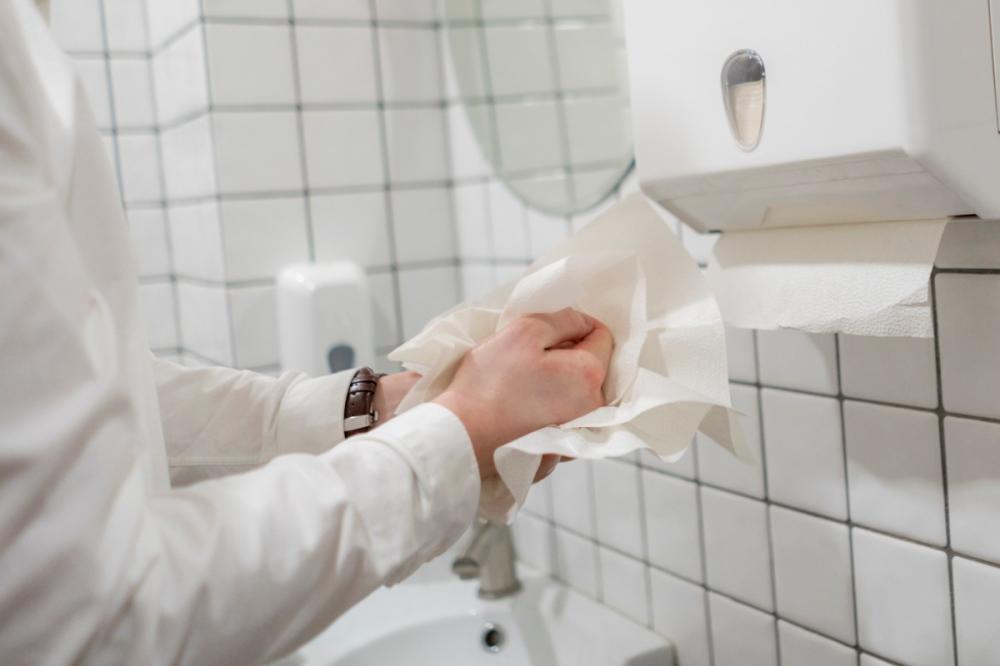search
date/time
 | Lancashire Times A Voice of the Free Press |
3:00 PM 15th October 2025
frontpage
Global Handwashing Day: Hygiene Expert Busts Myths Around Hand Washing
.jpeg)
Image: Courtesy High Speed Training
Today is Global Handwashing day, which is designed to raise awareness about the importance of good hand hygiene and motivate people to use good handwashing techniques.
Here, the team at Food Hygiene training experts High Speed Training bust some popular myths around hand hygiene.

Dr Richard Anderson
Image: Courtesy High Speed Training
Dr Richard Anderson, Head Of Learning And Development At High Speed Training, Said: “Wearing gloves can actually be less safe and less hygienic than not wearing them. Bacteria can multiply quickly on gloved hands, which can easily spread onto your hands if the glove is punctured or taken off.
“Gloves can also carry bacteria on them, and that bacteria can transfer onto anything you touch, which can cause cross contamination or issues with allergens.
“While you can wear gloves, you should bear in mind that hand washing is still the most proven way of limiting contamination of food, surfaces, and other objects, as well as keeping yourself safe. If you do wear gloves, ensure that you change them frequently, wash your hands thoroughly in between glove changes, and wear gloves that are food grade if you are preparing food.”
Myth 2 – The hotter the water, the more effective it is for washing your hands
Hot water alone does not kill bacteria or viruses: you must use soap in order to achieve this. Therefore, washing your hands in warm water – as warm as you find comfortable – with soap is effective enough to keep yourself safe. The recommended water temperature for hand washing is between 35 °C and 45 °C.

Image: Courtesy High Speed Training
Dr Anderson said: “While they may be common in toilets and bathrooms up and down the country, hand air dryers can actually increase the amount of bacteria on your hands after you’ve washed them. The inside of hand dryers are moist environments, meaning that they are the perfect environment in which bacteria can grow. Then, when air is released from the dryer to dry your hands, this air can be filled with bacteria.
“Germs can be transferred more easily to and from wet hands than dry hands. The safest way to dry your hands is by using disposable paper towels, as these help to prevent harmful bacteria and viruses from getting back onto your hands.”
Myth 4 – Alcohol hand sanitisers can always be used instead of hand washing
If hand washing facilities are unavailable then you should use an alcohol based sanitiser or gel, as it will still eliminate harmful bacteria. To be effective, the hand sanitiser should be at least 60% alcohol.
However, they are not as successful on dirty hands. With dirty or greasy hands, the sanitiser cannot remove bacteria to the same level as washing the hands can. What’s more, the alcohol in the sanitiser can dry out your skin, making bacteria harder to remove from dry skin as it can get stuck within the cracks and openings on the hands.
.png)
Dr Anderson said: “The length of time that you wash your hands for is actually very important. The NHS recommends that you wash your hands for 20 seconds, as this is how long it takes to effectively destroy any harmful bacteria or virus that may be on your hands, and allows time for thorough cleaning.”
Myth 6 – You only need to wash your hands after using the bathroom or before preparing food
Hand hygiene is essential for removing bacteria, viruses, and dirt, and prevents them from spreading to other people and objects. We must remember that we can pick up germs from everything we touch, so washing our hands frequently and after doing certain things is very important.
After you have used the toilet or changed a nappy.
Before and after touching raw foods, such as meat and vegetables.
Before eating or handling food.
After you have blown your nose, sneezed, or coughed.
Before and after you have treated a cut or a wound or administered first aid.
After you have touched animals, including any pets, their food, and after you have cleaned their cages.
After handling rubbish or recycling.